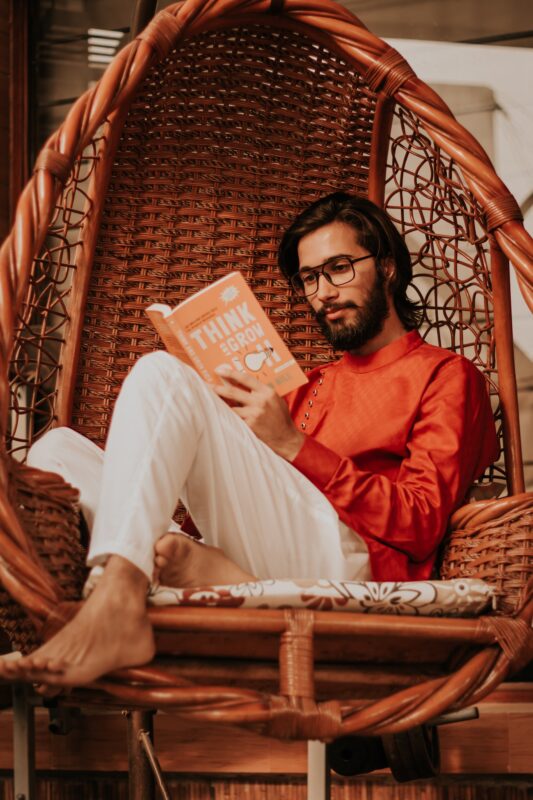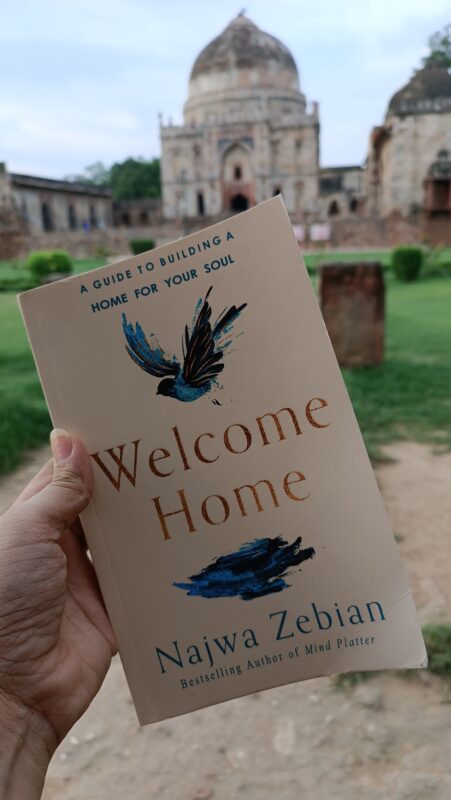
Self-help books, also called self-improvement books, are books that deal with diverse personal problems of the readers which may include mental health, career, bad habits, or relationship difficulties. In the preface of 12 Rules of Life: An Antidote to Chaos, a relatively ‘less dense’ book written for ‘general audience’ by clinical psychologist Jordan Peterson, he writes, “I hope that these rules and their accompanying essays will help people understand what they already know.”
In a way, self-help books help you decipher your thoughts, understand your suffering, or realize your potential to break out of the situation you are stuck in. The authors of the books come from diverse backgrounds: spiritual leaders, clinical psychologists, mental health experts, life coaches, poets, entrepreneurs, among others.
Surprisingly, only books by Western authors trigger top-of-the-mind recall. Indian authors do not seem to have made an impact, despite many such titles on display in bookshops.
While self-help books have become popular over the years, little research is available regarding the readers’ attitudes toward the genre and how such books have helped them. Haseena Abdullah, an independent therapist, shares her perspective on the popularity of self-help books.
“When we find decision-making difficult because of too much information and change, we get confused and cannot decide what turn to take in life. This confusion makes us hopeless or leads us to blaming ourselves or others. At this point, we realize that we need some help. Therapy at times may not be reachable or avoided due to the stigma around it. This is when people tend to turn to self-help books – to find answers”, she says.
A cursory search on Amazon with the keyword “books” will show that several self-help books are marked as “bestsellers.” The titles include: Life’s Amazing Secrets, The Power of A Positive Attitude, Be Your Own Sunshine, and The Psychology of Money. Interestingly, a specific issue is outlined in the leading title of works of this genre, and the solution is provided in the subtitle. The products may include guidebooks, inspirational pamphlets, mini books, audio books and daily journals.
In the bestseller section of many Delhi bookstores, self-help books outnumber other genres. Surjeet Singh, cashier at Oxford Bookstore in Connaught Place, says, “Most of the people that visit us are young. This genre specifically targets them on two fronts: mental health and career-building. This is the reason self-help books sell more than any genre. If I have to make an estimate, almost 30% of our sales come from the self-help section, which is a lot since we have a number of genres.”
The bookstore has sections such as non-fiction, classics, Dalit literature, translations, among others. In the bestseller section of the bookstore, the self-help titles far exceed other genres.
According to Raja Jain from Daryaganj, the publishing hub of Delhi, the percentage of sales for self-help books is as high as 60%. “We don’t recommend books to anyone. Here, you can pick up the book and pay the price. A lot of people tend to buy self-help titles. We get a bundle of mixed titles in retail and our self-help titles sell faster than any other”, he says.
Pankaj Jain, another bookseller in Daryaganj, says that his sales of self-help books is almost double than that of other titles. Almost all bookstores, irrespective of the types of books they sell, have placed the self-help titles on display to attract visitors and readers to the shop.
All the people Patriot interviewed claim to have been helped by these books once they started reading them. Some of them confessed that their biased attitude to this particular genre vanished when they actually started reading one.
Wajiha Haider, 22, started reading spiritual books before reading self-help books, when she shifted to Bangalore from Delhi. “Initially, I used to think that these books are for people who are unmotivated. I was a person who was always motivated, so it didn’t make much sense to read them. But once I got started, they helped me a lot”, she says.
Haider treats every self-help book she reads as an ‘experiment.’ She elaborates: “I try to read a book once I come to know how it has helped other people. Similarly, I see how it will change me.” She has read a number of ‘novel-like books’ such as Brida and The Alchemist by Paulo Coelho, in which she identifies with the characters because a lot of personal narratives are open to interpretation.
While it is debatable whether novels can be put in this genre, Haider’s perspective is interesting. “I tend to read books that have a story. When you read a guide, it is often not practical to follow the rules. In books that have a narrative, it really helps to understand how you want it”, she remarks.
Radha (name changed on request) started reading self-help books during a difficult time of her life: she had just lost a close family member due to Covid-19, came out of a toxic relationship and quit her job. “I found myself unable to express my feelings to friends and family because I thought I didn’t even recognize them myself”, she says. She picked a self-help book after coming across ‘self-help techniques and literature’ on social media.

“These books have made me calm, helped me introspect on the flaws in my perspective on life, and built me as someone who does not seek external validation”, she says as she explains how the genre helped her. She claims to have become an ‘empathetic listener’ once she read about how anxiety affects communication skills in the book Declutter Your Mind by SJ Scott.
For Sarahana, self-help books were both triggering and effective. As someone who has gone through a lot of childhood trauma, she had started to feel that her feelings were abnormal and kept them to herself. She was already in therapy when a friend suggested a self-help book.
“The book that I read talks about how parents emotionally abandon their children and how it affects your adulthood. These books helped me understand that I am not the only person who feels this way”, she says.
The books triggered her when she read episodes she had personally suffered. She has primarily read books that deal with childhood trauma and abandonment. “Whenever I would read these books, my subconscious mind would get active and remember the incident in my life”, she elaborates.
Sarahana would often find herself in a difficult situation: She cannot practically go back in time to change her past, her parents still remain emotionally unavailable, and then there was the moral dilemma of holding them accountable. When she started reading self-help books that deal with such topics, they helped her ‘acknowledge’ all this and ‘let it go.’
While books like Body Never Lies by Alice Miller and Adult Children of Emotionally Immature Parents by Lindsay C Gibson gave her a sense of community and helped her articulate her struggles, Fear: Essential Wisdom for Getting Through The Storm by Thich Nhat Hanh motivated her to forgive her parents and move on.
She also shares that such books can be ineffective at times. “They can either help when you are calm and comfortable or they can be unproductive when your mood is not good and you are uncomfortable”, she says. She also adds that if somebody is forcing themselves to read such books to help themselves, it is very likely that they will have an effect.
Almost all the people Patriot interviewed said that the unaffordably high fee of therapists is a deterrent and this is why people seek answers in books. Like Radha, who turned to the genre because “books are cheaper and most of them are available online in PDF format.”
However, Sarahana, who has taken therapy as well as read self-help books, believes that this may not be very effective as we “need someone to talk to who is not judgmental and help us through the storm” during such times.
For more stories that cover the ongoings of Delhi NCR, follow us on:
Instagram: instagram.com/thepatriot_in/
Twitter: twitter.com/Patriot_Delhi
Facebook: facebook.com/Thepatriotnewsindia





